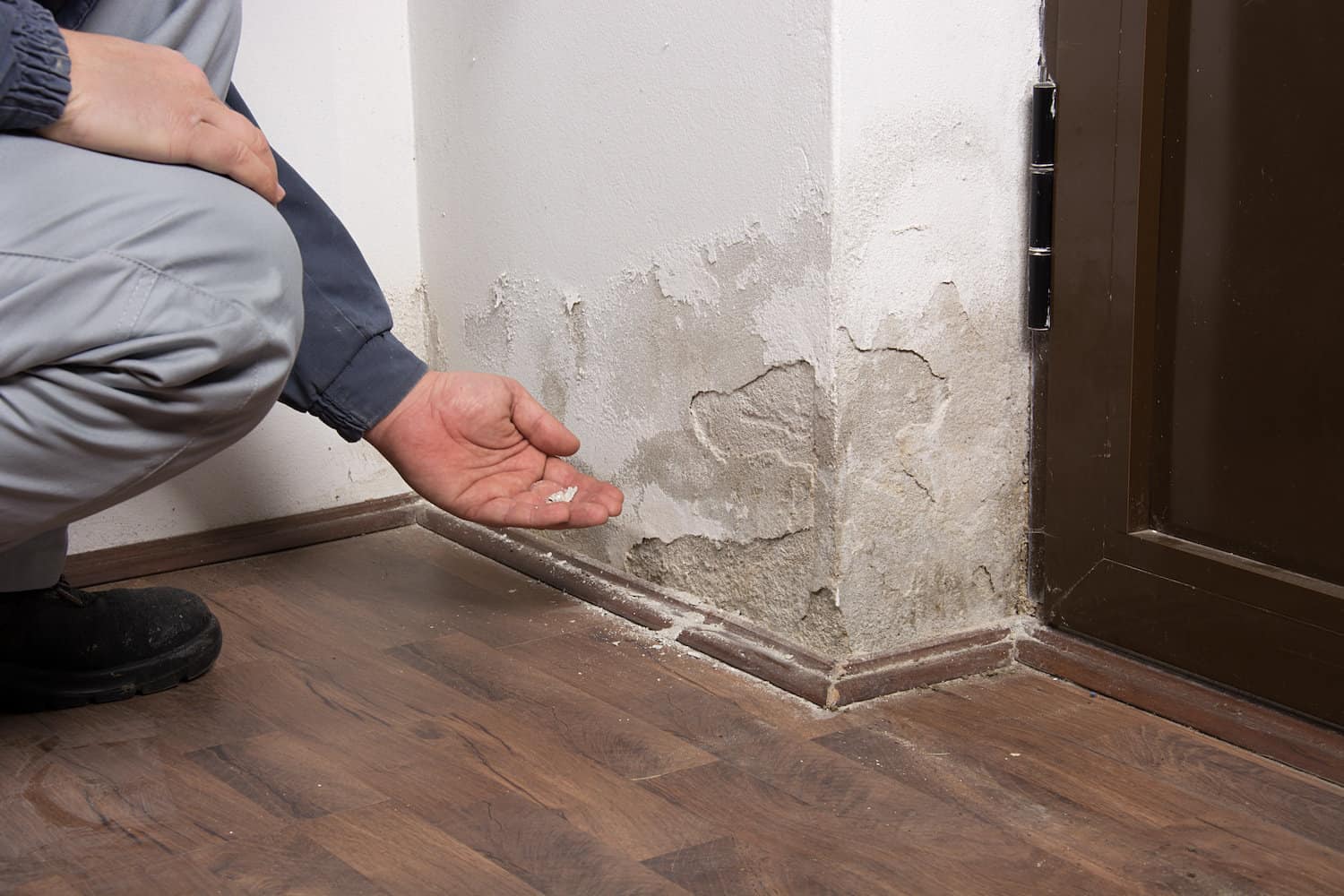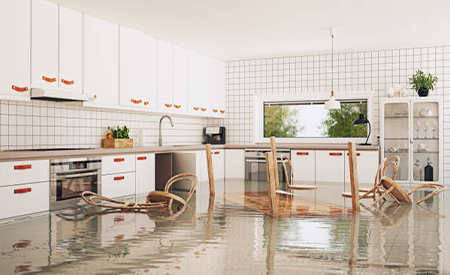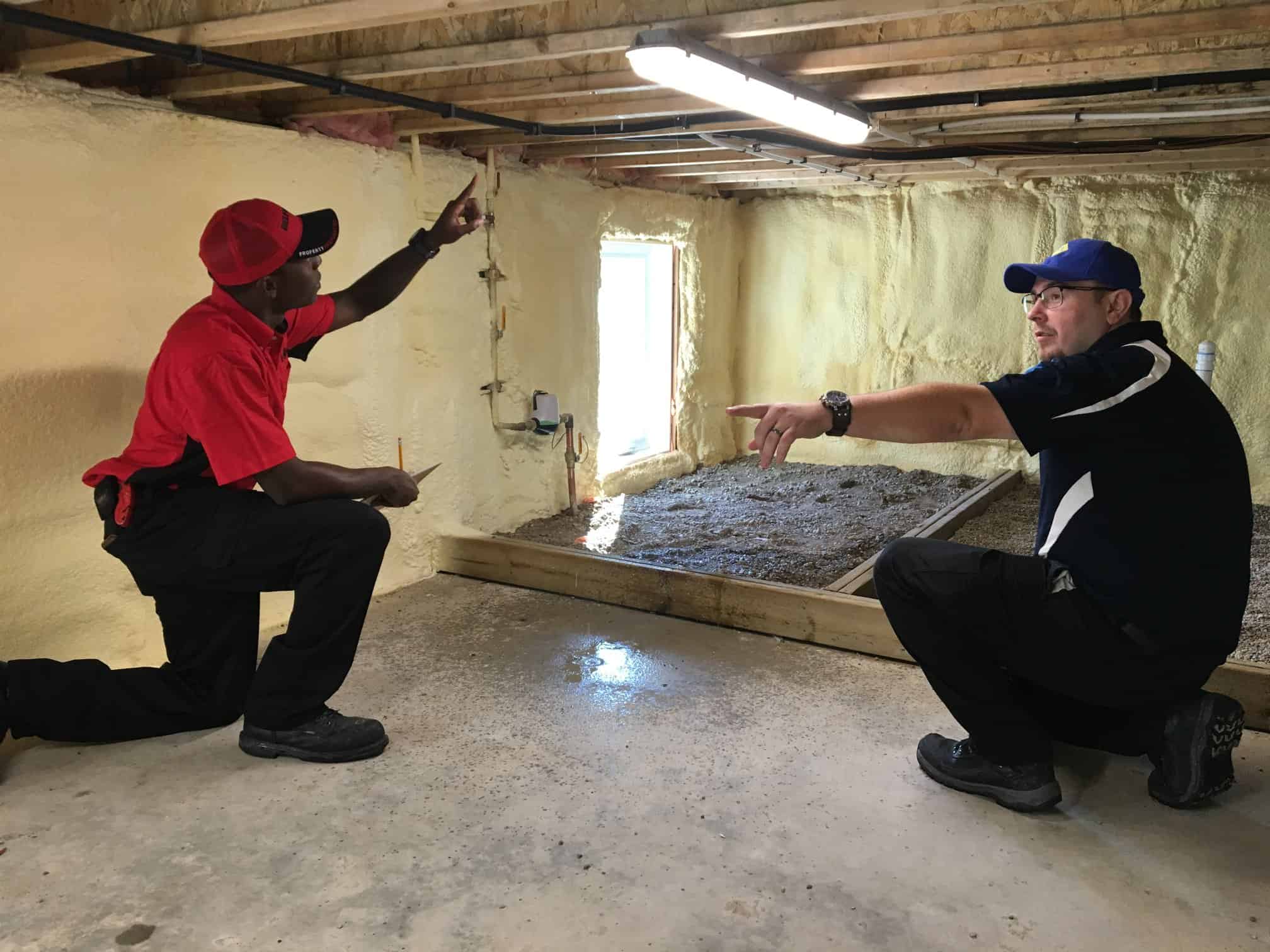Water Damage Restoration Specialists Ready to Fix Any Issue Fast
Water Damage Restoration Specialists Ready to Fix Any Issue Fast
Blog Article
The Process of Water Damages Cleanup: Guaranteeing Your Home Is Brought Back Efficiently
Water damages can be an overwhelming obstacle for property owners, demanding a precise and organized cleanup procedure to restore safety and functionality. An extensive assessment is important to identify the degree of the damage and identify the proper remediation measures. Following this, reliable water removal methods play a pivotal duty in minimizing further injury. Nevertheless, the subtleties of drying, sanitizing, and ultimate repair are equally crucial and often forgotten. Comprehending these stages can make a considerable distinction in the result of your home's reconstruction, prompting a closer take a look at what each action entails.
Analyzing the Damages
Upon uncovering water damage, the initial step is to extensively examine the degree of the effect. This initial evaluation is critical, as it assists determine the necessary actions for efficient cleanup and reconstruction. Begin by inspecting the influenced areas, including walls, ceilings, floors, and individual belongings, to identify the source of the water invasion, whether from flooding, leakages, or condensation.
Documenting the damages is crucial for both insurance policy claims and planning restoration efforts - damage restoration services. Use pictures and created notes to capture the seriousness of the damage, noting any type of damaged architectural components and materials. Pay special interest to areas that may not be instantly noticeable, such as behind walls and under rugs, as concealed wetness can result in further problems, including mold development
Furthermore, examine the timeline of the water exposure. Inevitably, a thorough analysis lays the groundwork for an effective water damage cleaning process, making certain that all impacted areas are addressed successfully and extensively.
Water Extraction Methods

Professionals typically utilize submersible pumps for larger volumes of water, which can promptly reduce flooding in basements or other influenced areas. For smaller sized quantities, wet/dry vacuum cleaners are commonly made use of to remove residual wetness from carpetings and difficult surface areas. Additionally, making use of portable extractors permits targeted removal in restricted spaces or areas with delicate materials.
In circumstances of polluted water, such as sewer or floodwater, advanced removal methods may include using biohazard tools to ensure security and compliance with wellness guidelines. High-powered removal devices are essential in reducing water retention in structural materials, which can lead to mold and mildew growth and structural deterioration if not resolved immediately.
Eventually, the performance of water removal techniques plays a critical role in the total success of the water damage cleaning process, preparing for succeeding restoration initiatives.
Drying and Dehumidification
Once standing water has been successfully drawn out, the following essential phase in the water damages cleaning procedure is drying out and dehumidification. This step is important to prevent further damage and mold development, which can happen within 24 to 48 hours in moist environments.
To attain effective drying out, specialized tools such as industrial-grade air moving companies and dehumidifiers is employed. Air moving companies flow air across damp surfaces, boosting dissipation prices, while dehumidifiers reduce moisture degrees in the air, advertising a conducive environment for drying. The mix of these tools makes sure that moisture is drawn out from walls, home furnishings, and floors, enabling them to completely dry extensively.
It is necessary to keep an eye on the drying out process very closely. Experts usually utilize dampness meters to assess the moisture web content in different materials, guaranteeing that all impacted locations reach appropriate dry skin levels. This careful strategy aids to protect against surprise moisture pockets that can result in architectural damages or undesirable mold development.

Cleaning and Disinfecting
After the drying and dehumidification stage is complete, the next important step in water damages cleanup is cleaning and sterilizing the impacted areas. This process is essential to avoid the growth of mold, bacteria, and other pathogens that prosper in damp settings.
The cleaning phase generally involves getting rid of any kind of particles, dirt, and contaminants from surfaces making use of specialized cleaning agents. For hard surfaces, a mix of soap and water or industrial cleansing items is typically employed. Soft products, such as upholstery and carpetings, may call for a lot more right here comprehensive cleansing methods, including heavy steam cleaning or deep removal methods, to ensure detailed cleanliness.

Sanitizing adheres to cleansing, utilizing EPA-approved disinfectants to get rid of hazardous microbes. This action is important, especially in locations that might have entered into contact with floodwaters or sewage, as these sources can present severe wellness threats.
Additionally, it is necessary to deal with any type of staying odors, which may require making use of odor neutralizers or sophisticated methods like ozone treatment. Appropriate cleaning and sanitizing not only bring back the security and health of your home yet also prepared for effective restoration and repairs in succeeding phases of the water damages clean-up process.
Remediation and Repairs

As soon as the evaluation is full, repair efforts can begin. This usually involves repairing or changing damaged products, guaranteeing that all job abides by neighborhood building regulations and criteria. For instance, if drywall has been endangered, it will certainly require to be eliminated and replaced with brand-new material. Furthermore, flooring might call for similar interest, depending on the level of water exposure.
It is crucial to involve knowledgeable remediation experts throughout this procedure, as they possess the know-how to deal with complicated fixings effectively. They can help mitigate possible future concerns, such as mold and mildew growth or architectural instability, hence ensuring a habitable and risk-free living atmosphere. Inevitably, reliable remediation and repairs bring back the home's stability and improve its overall worth.
Final Thought
In final thought, the procedure of water damages clean-up is critical for bring back a home to its pre-damage condition. Each stage, from evaluating the damage to applying efficient water removal techniques, complied with by comprehensive drying out, sanitizing, and needed repair services, plays what is water mitigation a crucial role in ensuring safety and compliance with structure criteria. Effective implementation of these actions not only alleviates instant damages however additionally enhances the long-term integrity and value of the property.
Water damages can be a challenging difficulty for house owners, demanding a structured and precise cleanup procedure to recover safety and security and capability. Inevitably, a detailed evaluation lays the foundation for a successful water damages clean-up process, ensuring that all affected areas are addressed successfully and thoroughly.
Effective water removal methods are vital in reducing damages and stopping further issues complying with a water invasion occasion.In conclusion, the process of water damage cleaning is vital for restoring a home to its pre-damage problem. Each phase, from examining the damages to implementing efficient water removal techniques, followed by extensive drying, sterilizing, and required repair work, plays an essential duty in ensuring safety and compliance with structure requirements.
Report this page